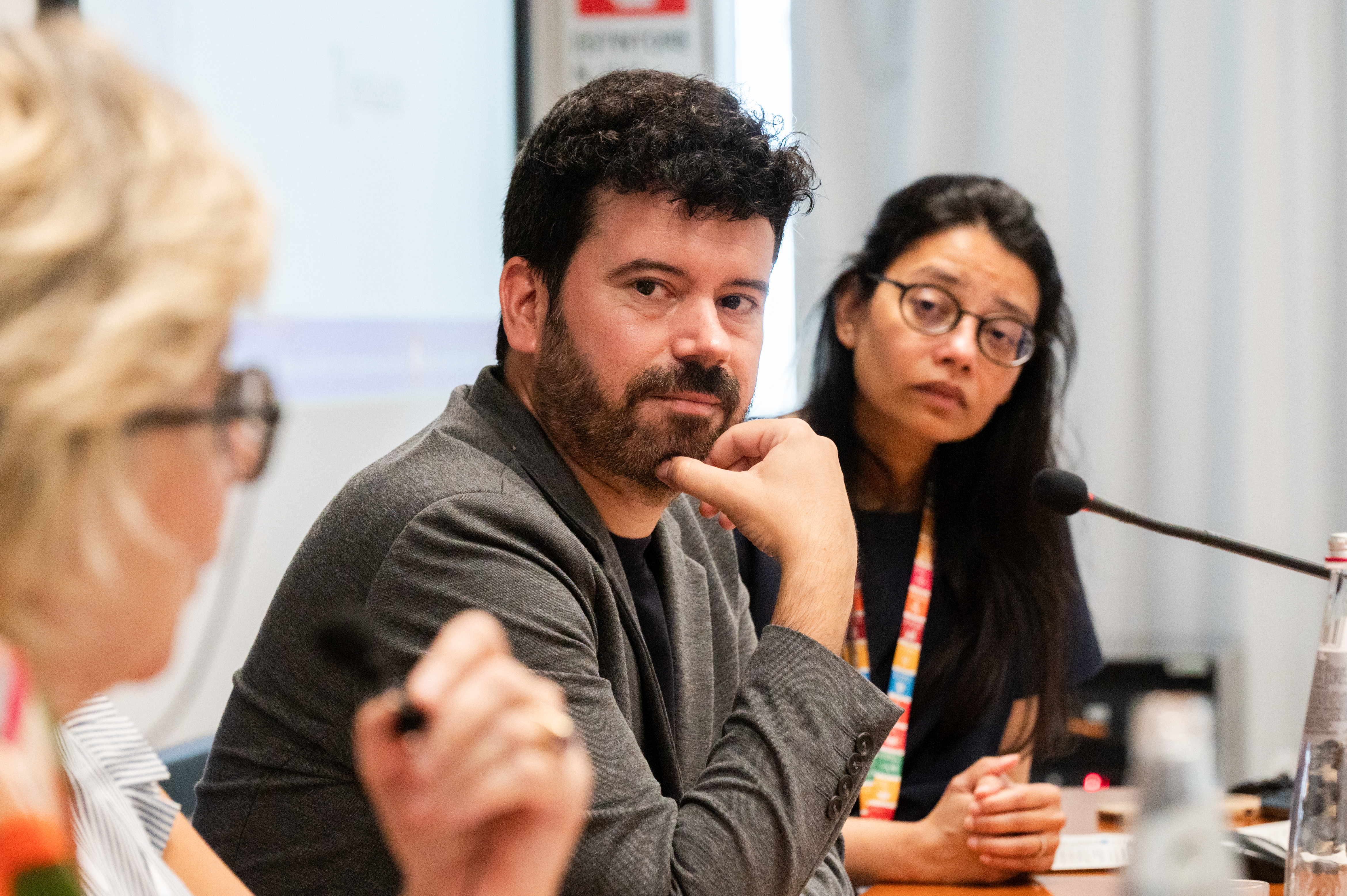In an era where scientific advancement and geopolitical complexity increasingly entangle, Barcelona has emerged as a diplomatic innovator. In 2018, it became the world's first city to implement a dedicated science and technology diplomacy strategy, creating a framework that other cities around the world have since begun to emulate.
At the center of this initiative stands Alexis Roig, CEO of SciTech DiploHub and Barcelona's Chief Science and Tech Envoy, who was one of the speakers at the 11th AAAS-TWAS Course on Science Diplomacy—an event which was primarily funded by the Swedish International Development Cooperation Agency (Sida). A Researcher at the United Nations University and UNESCO, with over 15 years of experience advising governments across Asia, Europe, and the Americas, Roig shared his insights on an emerging field: city-led science diplomacy.
Watch the video interview on the TWAS YouTube Channel:
The urban science ambassador
The Chief Science and Tech Envoy of a city acts as the ambassador of its science and technology ecosystem, Roig explains. " I represent the main research centers and universities before foreign governments, UN bodies, and at global summits, trying to elevate the role that the science produced in the city has abroad," he says.
This role encompasses not only representing Barcelona's scientific and technological achievements internationally but also ensuring they are at the heart of international relations. According to Roig, science diplomacy at the urban level addresses two global trends: the increasing relevance of cities in international relations and the growing centrality of science and technology in geopolitical considerations.
"So it was about time that a city tried to combine both things and use science and technology as a tool to be leveraged for city diplomacy."

From Barcelona to a global movement
Since Barcelona's initial foray into formalized science diplomacy, this approach has gained traction with other cities. "In the last years, we've seen cities like Geneva, like Mexico City or like Boston and London that are starting to engage in science diplomacy," Roig notes.
This expansion was deliberately cultivated. "One of the priorities of SciTech DiploHub when it was funded in Barcelona was making sure that Barcelona was not the first and only, or last city with science diplomacy, but that we were also working to pave the way for other cities to have their own science diplomacy strategies," he explains.
The diplomat-scientist interface
The field of science diplomacy often appears inaccessible to professionals from both scientific and diplomatic backgrounds. Scientists may feel they lack political acumen, while diplomats may be intimidated by specialized scientific knowledge. Roig, who has trained numerous science diplomats, notes this common perception gap.
Roig defines science diplomats as "knowledge brokers" who translate between the realms of policymaking, international relations, and scientific research. "Both profiles are not only useful but necessary," he emphasizes, suggesting that the field benefits from professionals with diverse backgrounds who share an interest in integrating scientific evidence into international negotiations.
Science Diplomacy and the Sustainable Development Goals
The relationship between science diplomacy and the United Nations Sustainable Development Goals (SDGs) represents another critical dimension of this emerging field. Roig argues that scientific and technological considerations permeate all 17 SDGs.
"All the SDGs are either science driven or they require science and technology to measure them," he explains. "It's either science and technology being one of the disruptors that create some of these challenges, or they are also the tools we need to develop in order to overcome some of these challenges."
This integrative perspective positions science diplomacy as fundamental to addressing complex global sustainability challenges, even as implementation of the SDGs faces criticism and practical obstacles.
Navigating a non-traditional career path
For those interested in pursuing science diplomacy professionally, Roig acknowledges the non-traditional nature of the career path. "It's a 'figure-it-out-yourself' kind of career," he admits. "So far, there are no very standardized positions that are labeled exclusively or mainly as science diplomacy."
Rather than waiting for formal job postings specifically labeled as science diplomacy positions, Alexis Roig advises aspiring practitioners to create opportunities within existing institution. "I would recommend to everybody wanting to work in science diplomacy to not get frustrated if they don't see job offers labeled as science diplomacy positions," he counsels.
Instead, he suggests recognizing the scientific dimensions of contemporary diplomacy and the international aspects of scientific engagement.
"Anything related to diplomacy nowadays is also related with science and technology. And anything related with science and engaging with the public, engaging with policy, has also these international aspects."
As Barcelona's experience demonstrates, the integration of scientific expertise into diplomatic frameworks—particularly at the urban level—represents a significant evolution in international relations. Today, science diplomacy offers a unique approach to addressing complex global challenges through the integration of specialized knowledge into policy frameworks at all levels of governance.
Giovanni Ortolani

